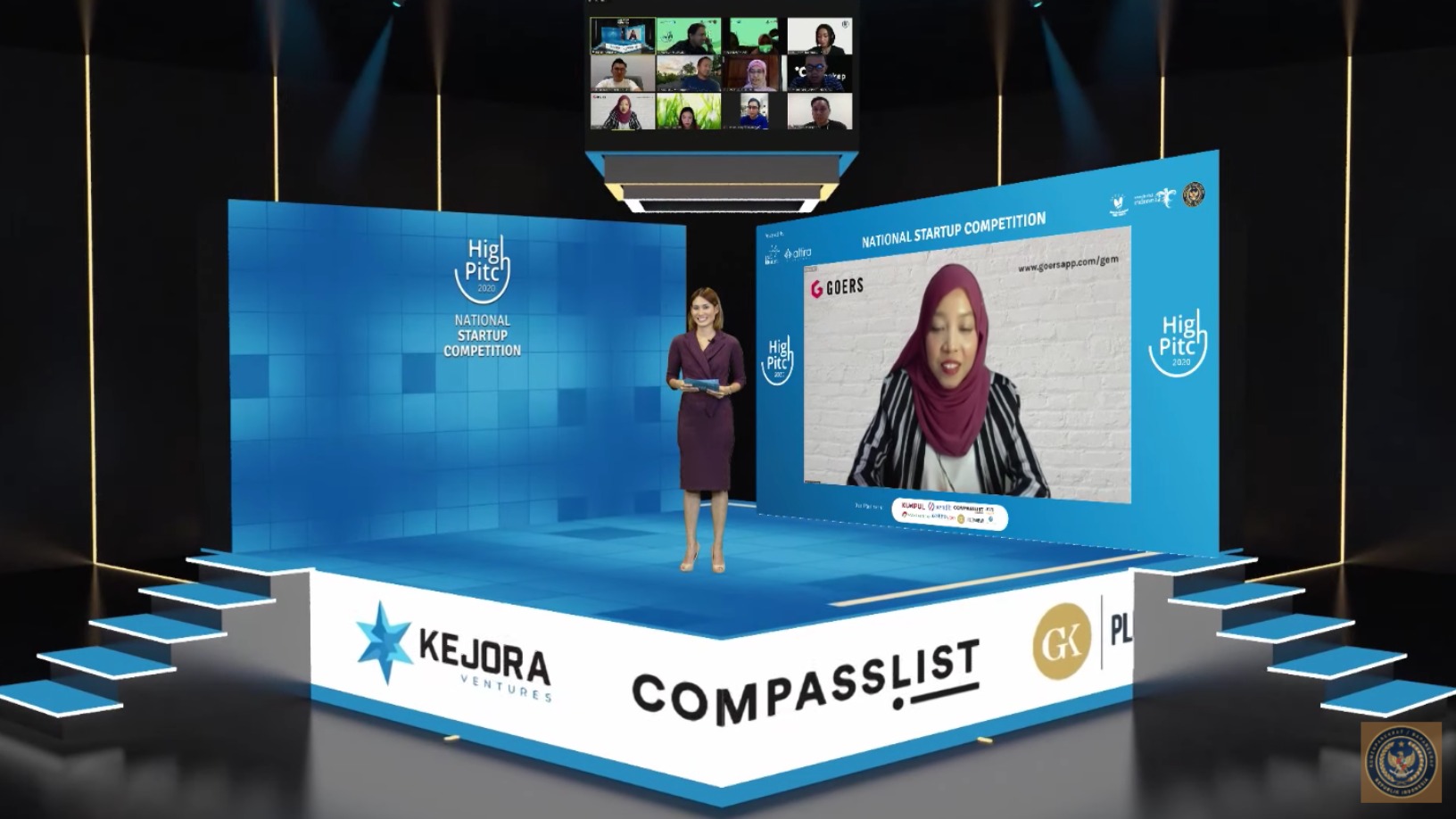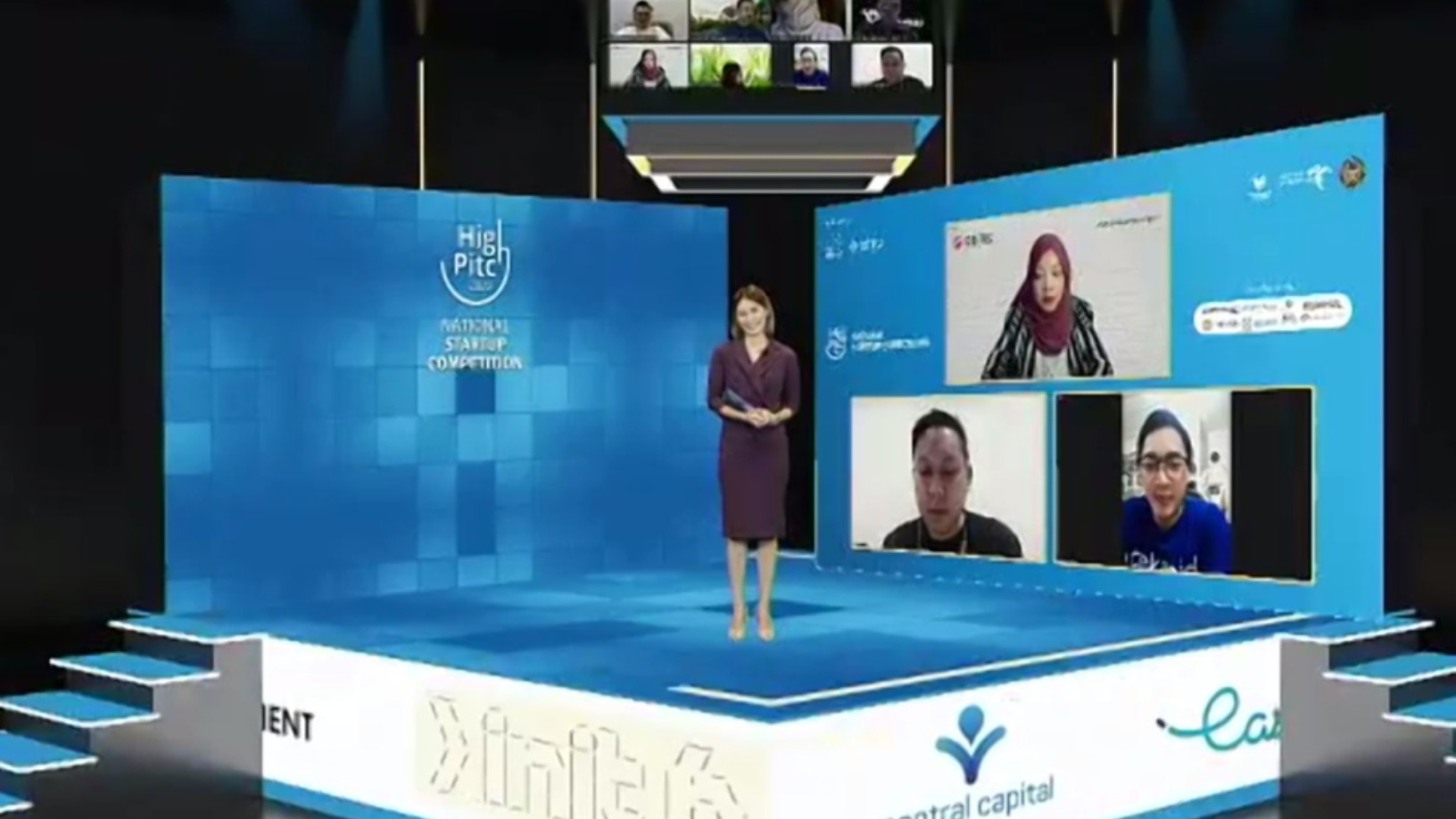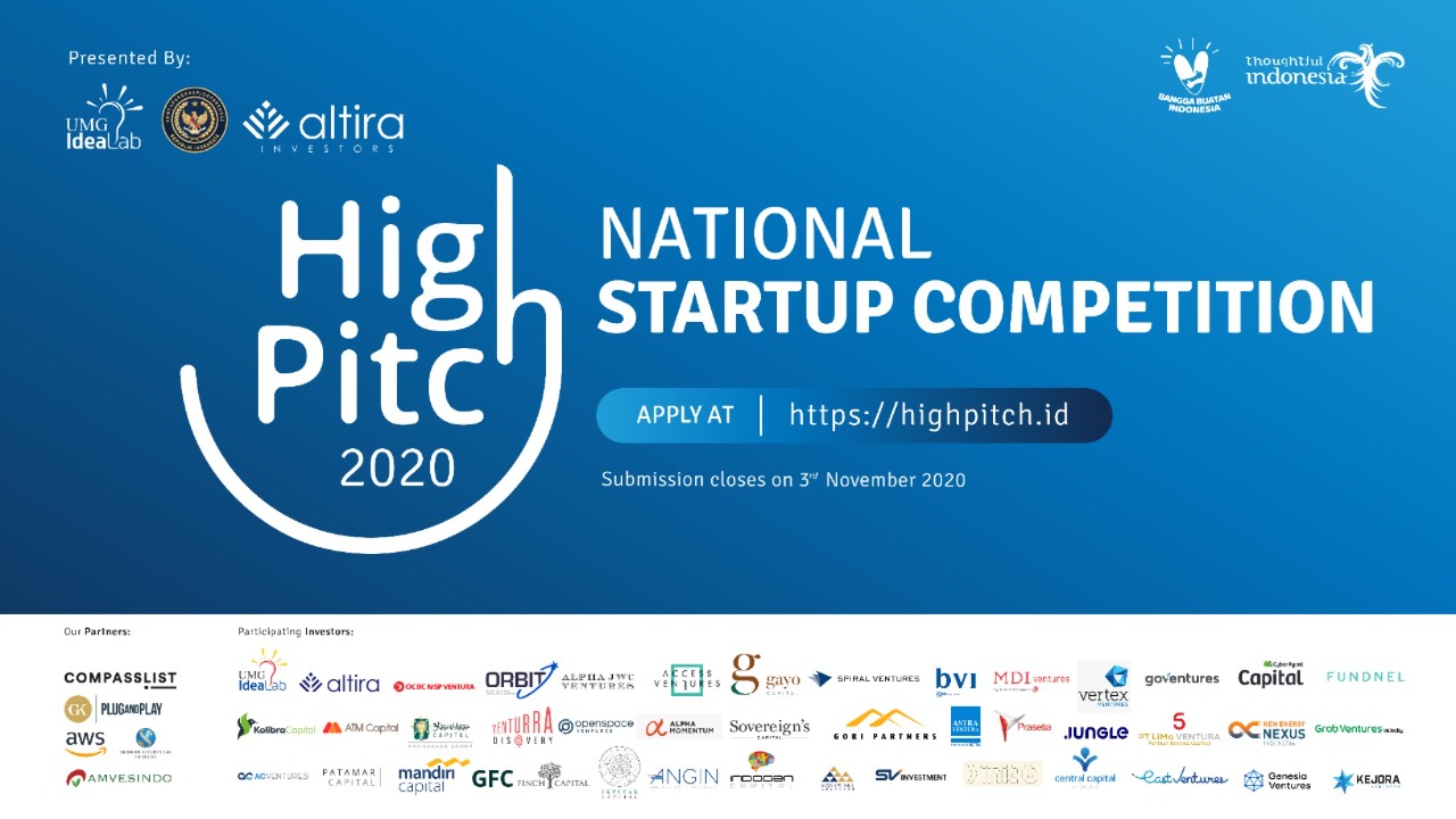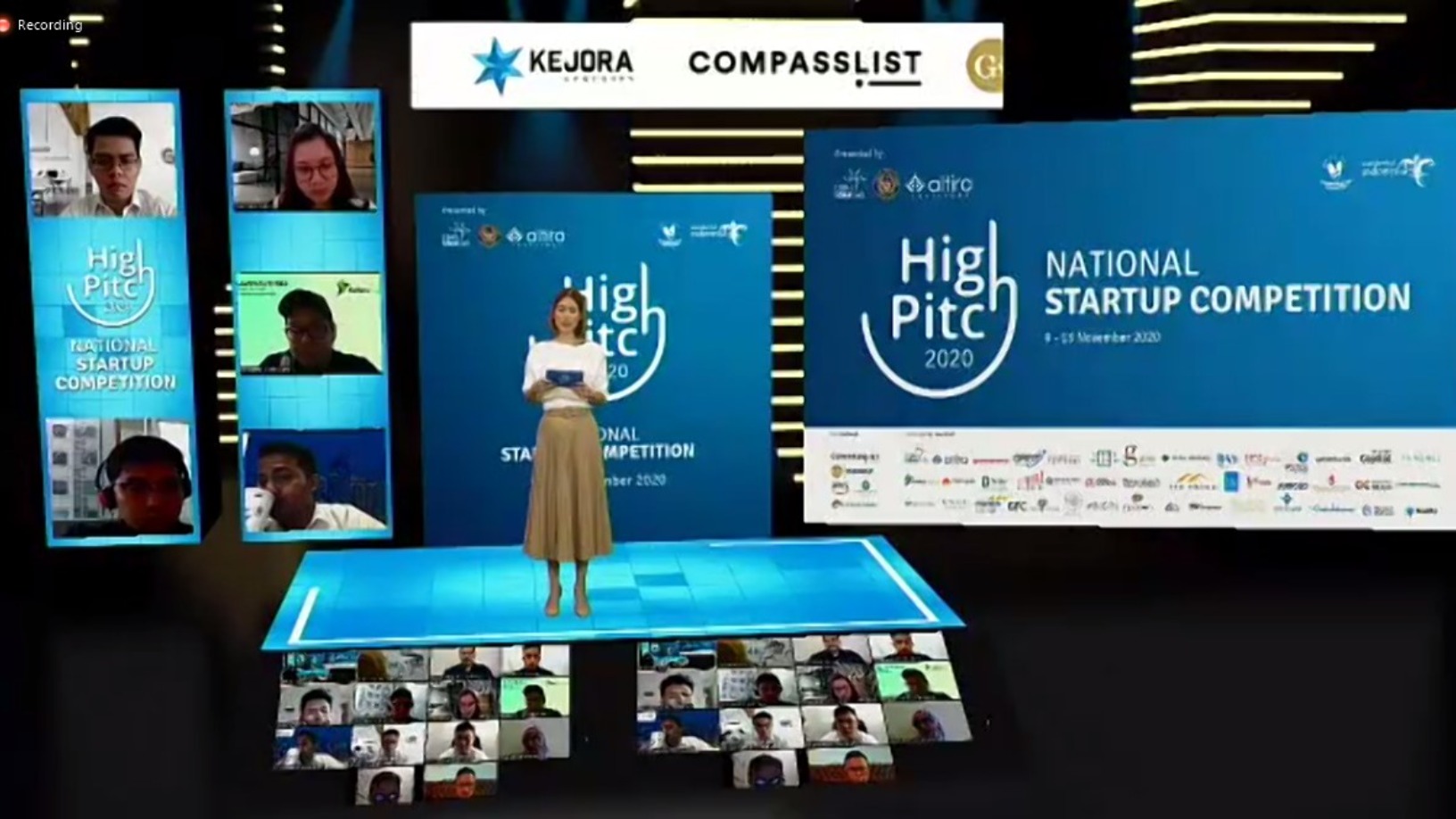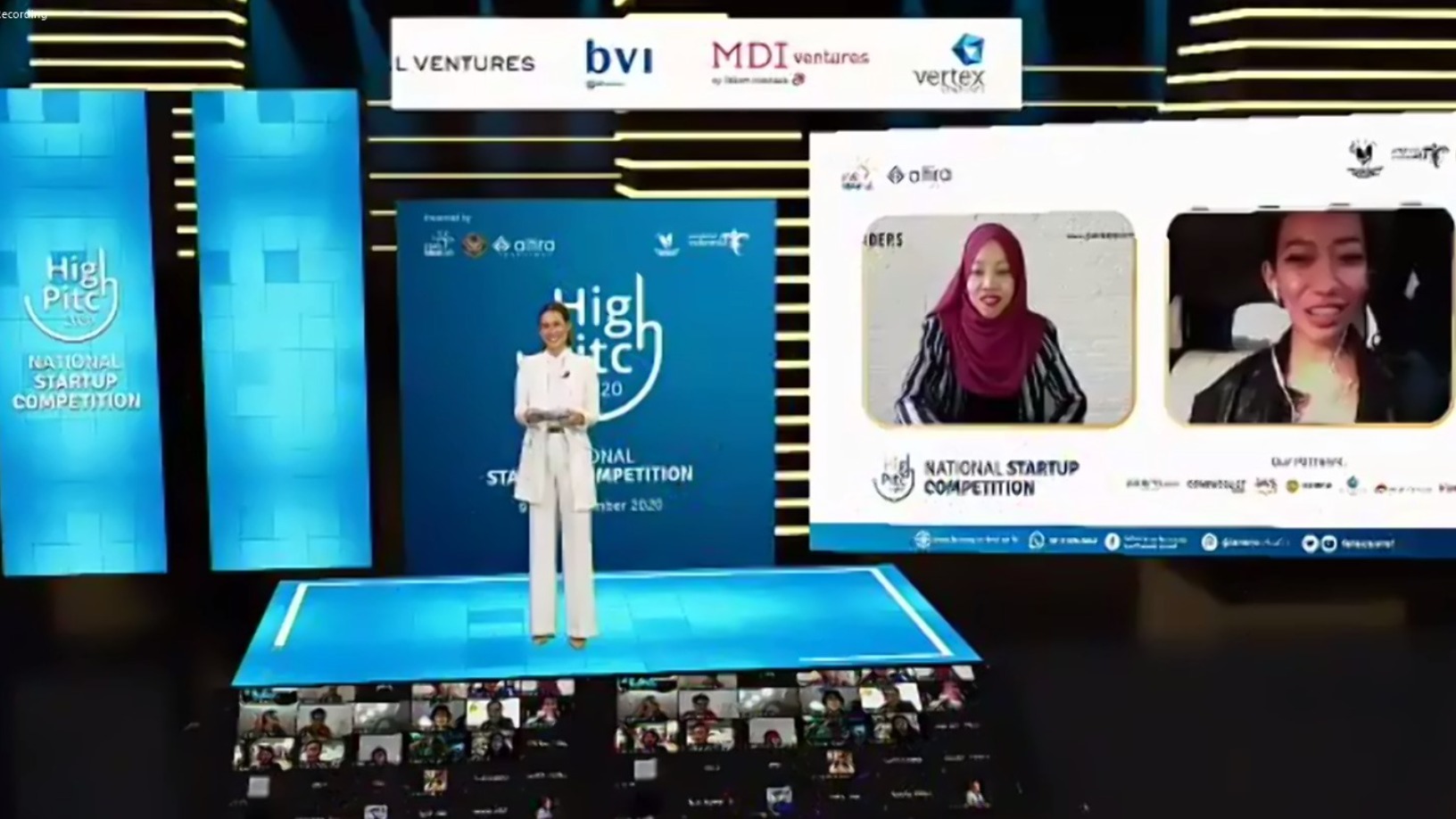After a few weeks of hustle and bustle, Indonesia’s national startup competition HighPitch 2020 wrapped up late November, with events and tourist attraction ticketing startup Goers clinching the top position. Hotel management platform Izy won second place, followed by on-demand lab testing service CekLab in the third spot.
The winning startups and seven others competed in the national final on November 25, representing five regional chapters that covered all Indonesian provinces. The 10 finalists had participated in a weeklong virtual bootcamp earlier to fine-tune their pitches and receive feedback on their business models. After the final, the startups attended an investment readiness course run by ALTIRA, which organized HighPitch together with Indonesia’s Ministry of Tourism and Creative Economy (Kemenparekraf/Baparekraf) and fellow investor UMG Idealab.
CompassList spoke to co-founders representing Goers, Izy and CekLab after HighPitch to learn more about their experiences during the competition and their plans going forward. Kiwi Aliwarga, CEO of UMG Idealab, also joined the interview, sharing his thoughts on the finalists and advice for startups navigating the post-pandemic Indonesian startup scene.
This interview has been edited for length and clarity.
What were your impressions of HighPitch? Any memorable experiences or lessons?
Niki Tsuraya Yaumi, Goers COO and co-founder: In the bootcamp we learned a lot and were able to ask many questions to the experts and the other startup founders. The investment readiness workshop was also very useful. We met investors and received clear, straightforward feedback on where we could improve, so we can meet other investors with confidence. The pitch sessions were nerve-racking, but everything went well in the execution because the organizing committee was very professional.
Gerry Mangentang, Izy CEO and co-founder: The format of the competition was interesting, starting from the pitch selection and doing so virtually. It was quite tense, seeing everyone pitch before and after us. The format was also quite interactive and it gave us a chance to learn how to pitch. The panel of judges were experts in their domains, and we learned as much as possible from their inputs.
Caesar Givani, CekLab CEO and co-founder: I appreciate how professional the flow and process was. It was very straightforward, no time wasted, and everything went smoothly. We also had a great audience, by which I mean the distinguished judges. It really boosted our morale, knowing that we were presenting seriously in front of serious people.
Is HighPitch your first startup competition? Did you make any special preparations for the event?
Goers’s Yaumi: We did not prepare much because our schedule was quite packed, but we always give our best when presenting our business, to convince people that despite the Covid-19 pandemic’s weight on the experience and tourism industry, there is a way out. That's what we wanted to convey in the finals, and we are glad to have won as a result. I am sure that the other businesses are doing well and presented well, and we are glad that the judges appreciated our business progress.
CekLab’s Givani: This is not our first competition, and we did not join every competition out there. We think that HighPitch is a very prestigious competition, so we felt it would be a good challenge to join the competition. Like Niki [Yaumi of Goers], we focused on our work, so we cannot join every competition.
Izy’s Mangentang: Our pitch deck has always changed and adjusted depending on competition formats. In recent months, we have also been pitching more to foreign audiences, e.g., in Singapore. We happened to be the only Indonesian startup in the K-Startup Grand Challenge. This has prepared us to pitch in English, and we take every opportunity to prepare and learn to do it well.
Mr Aliwarga, what do you think made these three startups stand out and secure the top positions?
Kiwi Aliwarga, UMG Idealab CEO: They presented their ideas and their startups well. On average, everyone in the top 10 did so. But these three rose to the top because they have demonstrated good traction and a good team balance. We don't know their inner workings, but based on their credentials, their performances so far, and their presentations, everything looks good.
Another important part of their success was how they handled questions from the judges well. Being able to do so means they have a good grasp of the problems. Some of the startups that presented could not show that level of performance. So I think Goers, CekLab and Izy were better than the rest.
What do you think the top 10 startups could improve on, based on their pitches?
Aliwarga: They can pay more attention to explaining things in simple terms, so that listeners can understand what they are saying, without getting long-winded. If the founders understand their own business well enough, they should be able to explain their concepts simply. I often get very long-winded answers and the main concept is lost. It takes practice to be able to explain your business in simple terms.
To Goers, Izy and CekLab, how do you plan to stay competitive in the year ahead?
CekLab’s Givani: Currently we are getting a lot of demand because of the pandemic, but we have to prepare tests that can be in demand after the pandemic; things like routine medical checkups, premarital testing, and tests for certain patient groups, such as patients with chronic blood-related illnesses. We need to schedule these in our long-term plan.
In our short-term plans, we have to stay agile and focus on growth. We have to focus on how to improve our margins using automation through an app and web platform, as well as improve customer service. We also have to scale to other cities where there is demand that we couldn't serve yet. We need to do this in a simple way in the short term, so we can capture the pandemic momentum. We can prepare things like pre-vaccination Covid testing or vaccination home services.
Izy’s Mangentang: When we started in 2018 and 2019, we projected that 2020 would be the peak because some major hotels would deploy the system this year. Unfortunately, because of Covid-19, those plans have to be delayed to next year. On the other hand, we did not expect that we would be able to expand to new regions. Before Covid, we focused on Greater Jakarta, Bali and Lombok, because that's where the big hotels are. After Covid though, Bali was hit hard, while in other places where we don't have team members, demand is rising.
Our most active hotel partners are in Balikpapan, Samarinda, and East Java, as well as Bandung and other secondary cities. We also now have presence in South Korea and Vietnam. There's a change in the projection – though the impact on revenue is negative, we are seeing many more opportunities to expand in the future.
Goers’s Yaumi: We will be focusing on two things: firstly, on the supply side, getting partners on the venues and event organizers side. We have target numbers for what kinds of venues and annual revenue from them. Secondly, we also want to build the virtual venue platform.
There's a sense that in 2021 we will go back to normal, and we want to fulfill the need of doing hybrid events, where there's a combination of offline events with limited attendance and online events. We will be the only platform in Indonesia that can fulfill this need, along with other features that are still in development.
Any advice, Mr Aliwarga, for the startups in terms of how they can stay competitive in 2021?
Aliwarga: Personally I don't think we can get back to normal in 2021, as we don't know how effective the vaccine is going to be. If we consider that the situation is going to persist until 2021, we have to think of what you should do. Investors will be harder to get in 2021, as they will be more selective to find businesses that can adapt to the situation.
So more than a definite business model, what's more important is to move fast and be agile in changing your business model, your tech focus and customer focus. It takes a certain skill to do this. In the years ahead, this skill is going to be more important for one to get noticed and stay competitive.
CompassList is the official media partner of the HighPitch 2020 National Startup Competition.
